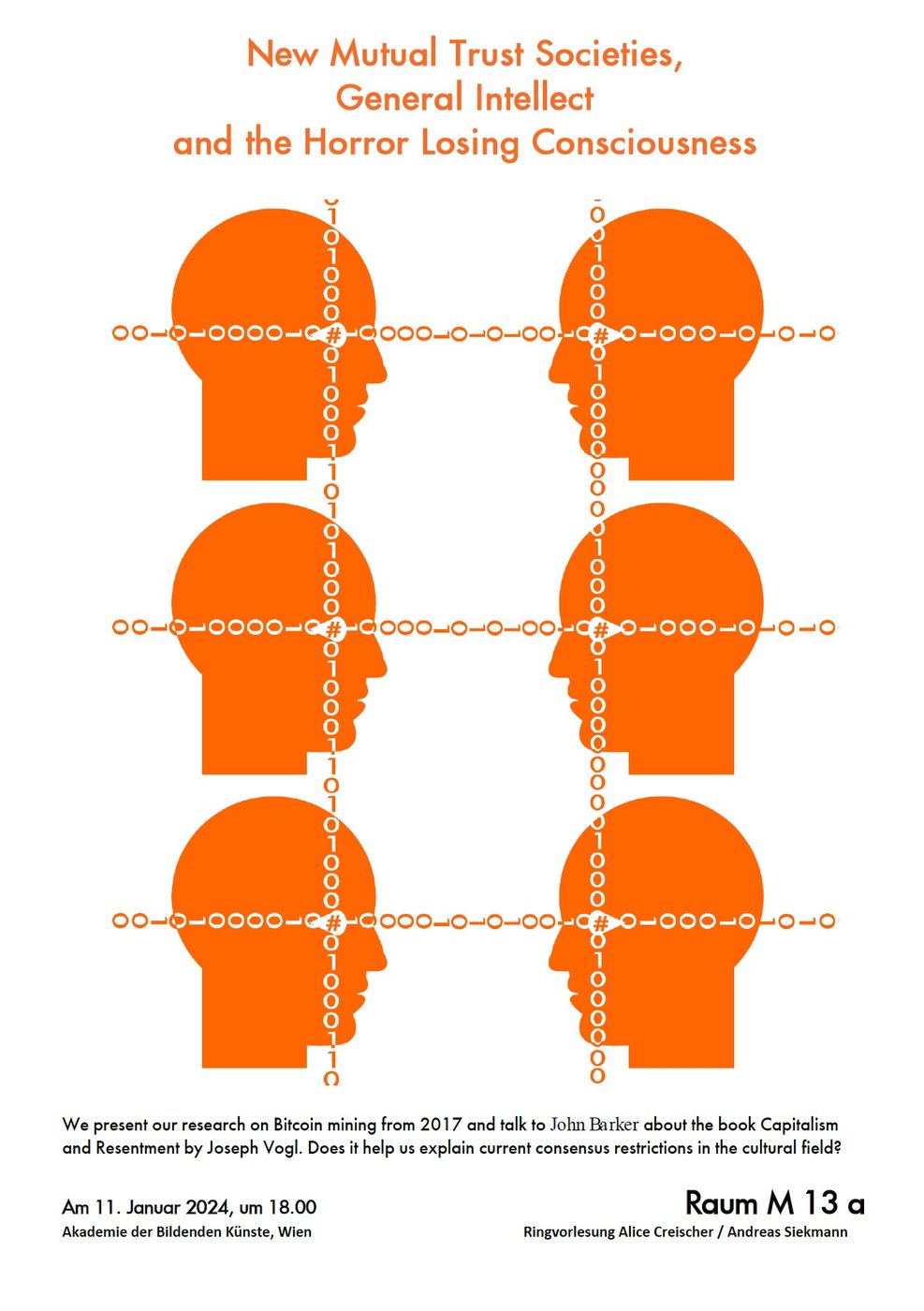New Mutual Trust Societies, General Intellect and the Horror Losing Consciousness
Guest lecture by John Barker as part of the IBK lecture series at the invitation of the studio for Art and Image | Context.
John Barker lives in London and Vienna, he is writer, essayist and performer , From the 1970s onwards he has published a number of texts of political economy and on the capitalist psyche and ideological oppor tunism. These have appeared in Red Notes; Mute; Adbus fers; Capital and Class; Telepolis; M ELA; Science as Culture; Variant, and Scoffish Left Review. He has written an essay dealing with the colonial political economy of cocaine, From Coca fo Capital for the Potosi Principle exhibition in Madrid, Berlin, and La Paz. His short stories have appeared in The Edinburgh Review, Jammagazine; Passport, Brand ... among others
Since 2010 he has been collaborating with the Austrian artist lnes Doujak as writer and performer in several films and exhibitions and in Loomshuttles Warpaths, an as brilliant as engaged archive on doth and colonialism, parts of which have been shown in Vienna, Malme, Stuttgart, and London. For the Liverpool Biennial 2021 they worked on a podcast series which looks at the social and cultural history of pandemics, beginning with the global transmission of diseases that was facilitated by European colonialism -one of the rare provider of conscious in the corona time.
He is founding member and trustee of MayDay Rooms in London: an archive, resource space and safe haven for social movements, experimental and marginal cultures and their histories, and he was part of the Midnight Note Collective - one of the most important political magazines in the 80s until the early 2000s.
The book Kapital und Ressentiment by Joseph Yogi was published 2021 shortly after the pandemic but before the Ukraine war. In 6 chapters, it describes the development of information technology and financial capitalism towards their current methods of domination, control and exploitation. This affects not only resources and life time, but also the methods and skills of cognition, knowledge and learning. He thinks that these methods are developing into a rationality of resentment, a consensus produced by algorithms, with extreme intolerance of deviation.
